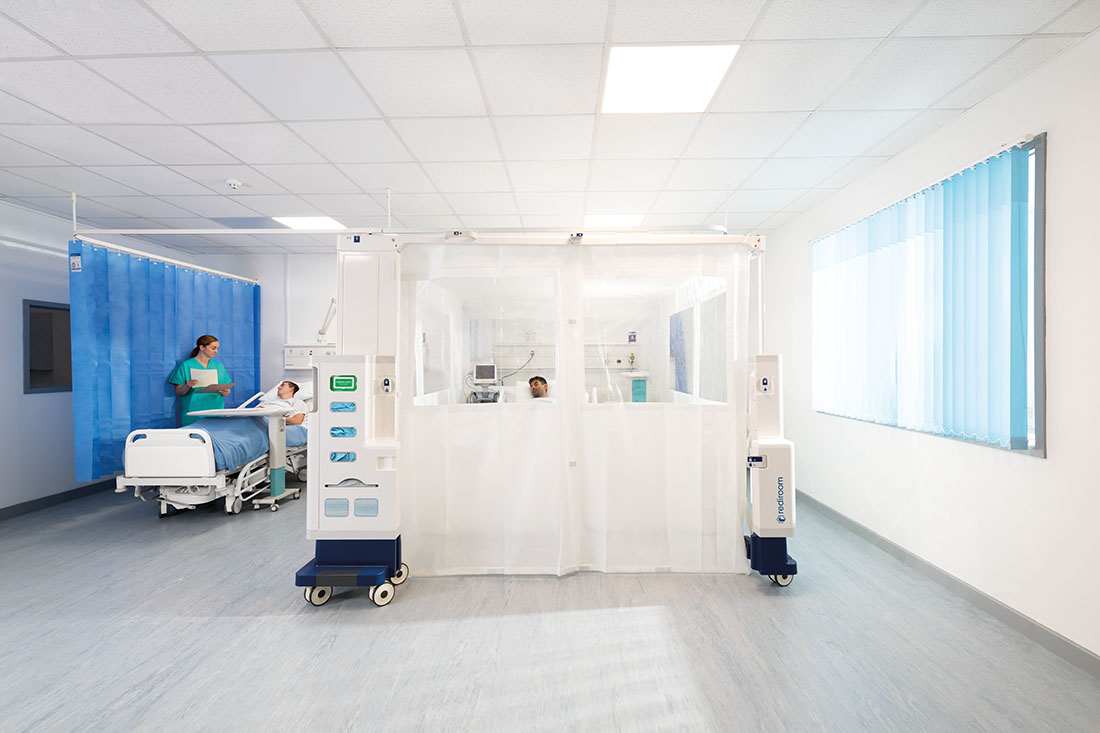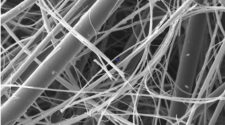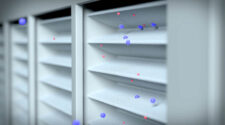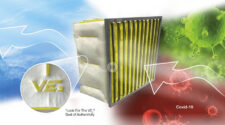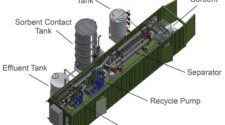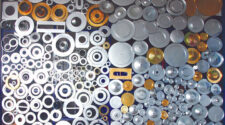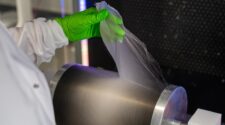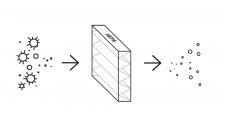Having been fully field-tested and proven by the UK’s National Health Service (NHS) under extremely testing circumstances over the past two years, the Rediroom is now being launched into key territories across EMEA, Asia and the Americas by GAMA Health-care.
Over 400 orders have so far been secured for this ingenious mobile cart that can be expanded into a fully high efficiency particulate (HEPA) air-filtered isolation room with hands-free entry in just five minutes.
Flexible
As such, Rediroom provides a flexible solution to increasing isolation capacity in response to outbreaks of infection, suspected or unconfirmed infections, and the ability to isolate patients anywhere, including multi-occupancy wards. This reduces the risk of hospital acquired infections (HAIs).
HAIs in U.S. hospitals alone have direct medical costs of at least $28.4 billion each year, according to the Centers for Disease Control and Infection (CDC). They also account for an estimated $12.4 billion in additional external cost to society from early deaths and lost productivity.
Rediroom is designed to isolate against the common diseases spread through droplet and direct contact, rather than through aerosol like Covid-19, and the protection it provides is most effective for diseases such as norovirus, seasonal flu, C. difficile, and Methicillin-resistant Staphylococcus aureus (MRSA).
The response has been very positive at the over 30 NHS trusts where it has been installed during a great strain on the system.
Rediroom provides an instant solution. The structure’s HEPA and carbon filters remove 99.995% of particles down to 0.3 microns making it more efficient than an N95 respirator and small enough to trap respiratory droplets and bacteria before air is returned to the ward.
For many reasons, the UK’s NHS is envied around the world and fiercely defended by the country’s citizens against any attempt at its privatization yet supplying entirely free health care to all on such a crowded island was also going to result in severe stress at the height of the Covid-19 pandemic.
In the UK, 93% of their hospitals have less than 50% of their bed capacity in single rooms.
Risk assessments
“As a result, infection prevention and control teams are constantly making risk assessments and one day a patient will be in a side room because they’re infected and the next day a patient will come in with a more significant infection, so the earlier patient has to be moved,” said GAMA Healthcare’s clinical director, Martin Kiernan. “This problem was, of course, greatly amplified by Covid.”
Increasing single bed capacity is not possible without losing beds or incurring huge building costs and causing major disruptions, he added. Temporary facilities are available, consisting of semi-permanent static pods, but while they work very well, they have solid walls and are intended to be in place for a period of around six months.
“Not that long ago in the UK you would find 28-bed wards and while we’re not in that situation anymore, it’s quite common to find bays of four, six or eight patients in hospitals,” Kiernan said. “We don’t yet have the luxury of places like the USA, where patients are generally in single rooms. What can happen sometimes, if you have a particular cluster of infections, is that you may actually put people with the same infection together to protect others, but of course they may also carry other pathogens and can still transmit infections.”
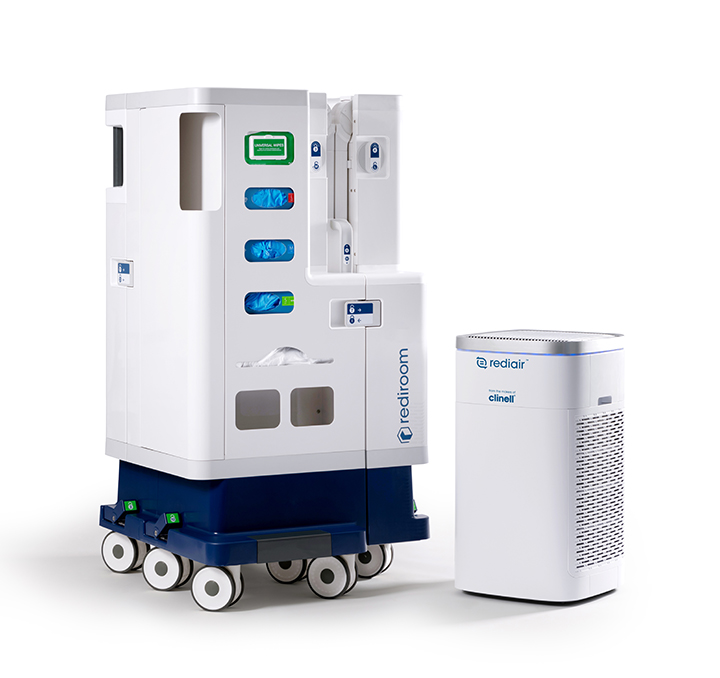
Pathways
Isolating people is extremely important, he added.
“We do it all the time because we need to separate those who have pathogens from people who are vulnerable to infection. Patients coming into healthcare settings are vulnerable because we create pathways into the body that pathogens don’t normally get a chance to get into, through intravenous lines, urinary catheters, surgery and more, and an organism that wouldn’t bother us if we’re well can cause significant problems when we’re ill.
“What we tend to do, is separate people physically and that stops the contact and the environment around people becoming contaminated. We know that many healthcare pathogens can survive for months, or even years lying around in the environment if we don’t physically remove them, so it makes sense to try and restrict them to certain areas. Aerosols can always be a problem – as we’ve seen most recently with Covid-19 – so segregating the infected from the non-infected, or those we think are non-infected, is a cornerstone of infection prevention and control.”
HEPA and carbon
Rediroom provides an instant solution. The structure’s HEPA and carbon filters remove 99.995% of particles down to 0.3 microns making it more efficient than an N95 respirator and small enough to trap respiratory droplets and bacteria before air is returned to the ward.
“It was never designed to be used for aerosol as such, because it wasn’t tested in that way, but many hospitals have been using it for coronavirus because they have absolutely nothing else,” Kiernan said. “The important thing is that it’s deployable within five minutes and is easy to decontaminate, because the whole of the inner canopy is single-use and disposable.”
The structure consists of a PP spunbond canopy roof and double laminated PP/PE spunbond walls with PVC windows and is sealed in place with double-sided peelable tape. All materials are treated with anti-
static, anti-flammable and anti-odor agents.
Thorough cleaning of the cart once the disposables are removed takes around 15 minutes.
Practicality
“The practicality of Rediroom is really helpful in a busy healthcare setting and not just for Covid strategies,” Kiernan concluded. “The list of other hospital pathogens is growing, as well as antibiotic resistance, so this has the potential to impact greatly on healthcare anywhere around the world.”
“We have been delighted by the successful roll-out and the adoption of Rediroom by the NHS,” added Guy Braverman, GAMA Healthcare’s joint CEO. “The isolation capacity of each purchasing hospital has been increased by an average of 5% and produced excellent results during the pandemic.
“The use of Rediroom to date has provided further validation that it can help change the way that we approach infection prevention and protect patients and hospital staff from the risk of HAIs, and has the potential to do so in other healthcare systems as well.”
Rediair
GAMA is also launching Rediair – an instant air purification device which provides clean air where and when it’s needed by capturing particulates, odors and 99.995% of airborne pathogens.
Particularly useful in poorly ventilated spaces, it is equipped with dual HEPA 14 and carbon filters with the ability to capture ten times the particles of a HEPA 13 machine. Adaptable to any situation, Rediair has four different operating modes that begin to decontaminate the surrounding air within seconds.


